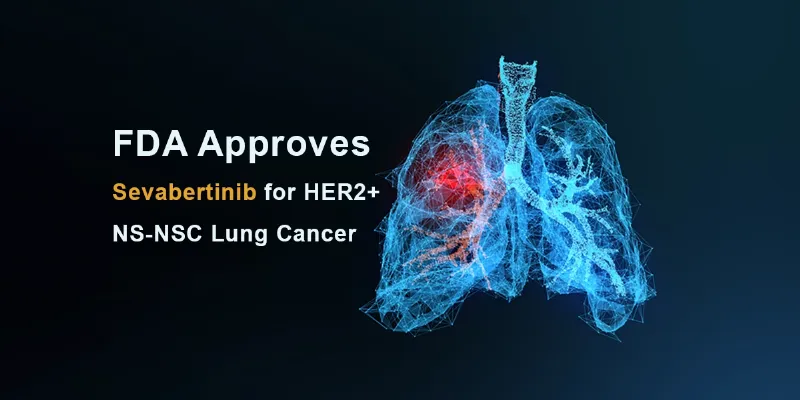FDA Approves Durvalumab as First Perioperative Immunotherapy for GEJ Cancers

Durvalumab (Imfinzi) combined with FLOT chemotherapy has been approved by the FDA as the first perioperative immunotherapy for resectable gastric and GEJ cancers. The Phase III MATTERHORN trial demonstrated a 29% reduction in the risk of progression, recurrence or death and a 22% reduction in mortality. Median event-free survival was not reached, and pathological complete responses nearly tripled.
The US Food and Drug Administration has approved durvalumab (Imfinzi) in combination with standard FLOT chemotherapy as a perioperative regimen for adults with resectable gastric or gastroesophageal junction adenocarcinoma, marking the first immunotherapy authorised in the neoadjuvant setting for this disease. The decision is based on robust efficacy data from the global Phase III MATTERHORN trial, which demonstrated meaningful improvements in event-free and overall survival when durvalumab was integrated before and after surgery.
A New Standard for a High-Risk Patient Population
The MATTERHORN data suggest that adding perioperative immunotherapy to FLOT chemotherapy may shift long-standing outcomes for this patient group. The approved regimen consists of durvalumab plus FLOT administered before surgery, followed by durvalumab with chemotherapy after surgery and then durvalumab monotherapy. FLOT, the backbone of modern perioperative therapy, includes fluorouracil, leucovorin, oxaliplatin and docetaxel.
“Today’s approval marks the first immunotherapy regimen approved in the neoadjuvant setting for gastric and GEJ cancers, with durvalumab demonstrating a clear overall survival benefit and opening an entirely new chapter in the treatment of early-stage disease. Nearly seven in 10 patients were alive at three years following treatment with the durvalumab-based perioperative regimen. This survival benefit, observed regardless of PD-L1 status, establishes a new standard of care in this curative-intent setting,” said Dr. Yelena Y. Janjigian, Chief Attending Physician of the Gastrointestinal Medical Oncology Service, Memorial Sloan Kettering CC and principal investigator in the trial.
Strong Survival Benefits in MATTERHORN
MATTERHORN enrolled 948 previously untreated adults with resectable Stage II to Stage IVA gastric or GEJ adenocarcinoma. Patients were randomised to receive neoadjuvant and adjuvant treatment with either durvalumab plus FLOT or placebo plus FLOT.
Durvalumab delivered a significant reduction in the risk of disease progression, recurrence or death. Event-free survival, the primary endpoint, improved by 29 percent with a hazard ratio of 0.71, confidence interval 0.58 to 0.86. Median EFS was not reached in the durvalumab arm, compared with 32.8 months in the control arm. One year after treatment initiation, 78.2 percent of patients receiving the durvalumab regimen were event-free compared with 74.0 percent in the placebo group; at two years, the figures were 67.4 and 58.5 percent.
Durvalumab also improved overall survival. The risk of death was reduced by 22 percent, hazard ratio 0.78, confidence interval 0.63 to 0.96. At three years, 69 percent of patients treated with the durvalumab-based regimen were alive compared with 62 percent in the chemotherapy-only arm. Survival gains were consistent regardless of PD-L1 expression.
A notable increase in pathological complete response was also observed, 19.2 percent with durvalumab versus 7.2 percent with FLOT alone, adding biological support to the clinical benefits.
Safety Profile and Surgical Feasibility
Toxicities with the combination were consistent with the known profiles of Imfinzi and FLOT. Rates of grade 3 or higher adverse events were comparable between the two study arms, approximately 72 percent in each. Importantly, the proportion of patients proceeding to surgery was similar, indicating that neoadjuvant immunotherapy does not compromise operability. As with other PD-L1 inhibitors, the prescribing information carries warnings for immune-mediated toxicities, infusion reactions and embryo-fetal harm.
Regulatory Pathway and Global Implications
The FDA reviewed the application under Project Orbis, enabling coordinated oncology drug submissions across several regulatory jurisdictions. Authorities in Australia, Canada and Switzerland are evaluating the regimen, and applications are also under review in the European Union, Japan and additional countries.
With this approval, durvalumab becomes the first and only perioperative immunotherapy for resectable gastric and GEJ adenocarcinoma in the United States. It also represents the third perioperative indication for durvalumab in the US, reinforcing the expanding role of immunotherapy in earlier stages of solid tumours.











Comments
No Comments Yet!